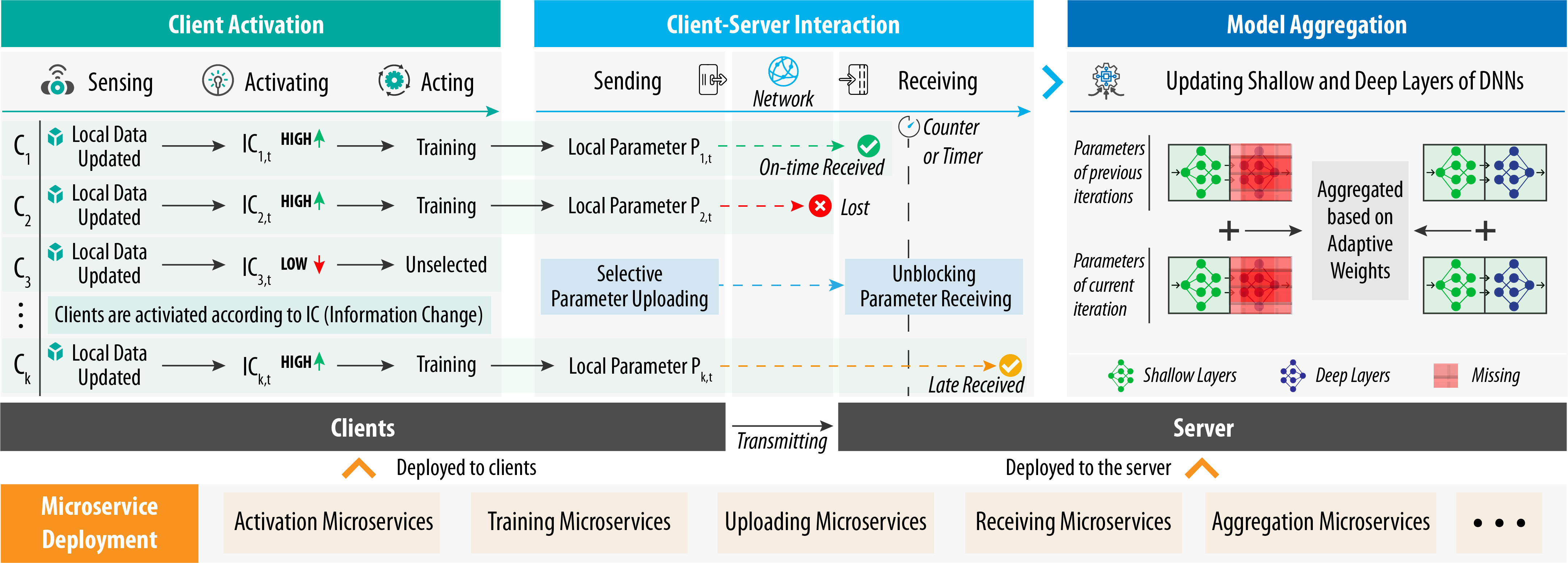Federated and Asynchronized Learning for Autonomous and Intelligent Things
Published in IEEE Network, 2023
Recommended citation: L You, S Liu, B Zuo, C Yuen, D Niyato, and H Vincent Poor, "Federated and Asynchronized Learning for Autonomous and Intelligent Things", IEEE Network, vol. 38, no. 2, pp. 286-293, Mar 2024, doi: 10.1109/MNET.2023.3321519. https://ieeexplore.ieee.org/document/10274563
Abstract: The Internet of Things (IoT) intertwined with autonomous and intelligent things (AITs) is beginning to affect many aspects of our daily lives. Along with this trend, asynchronous federated learning (AFL) is an enabler of harnessing the diverse and heterogeneous sensing and computing capabilities of AITs in a collaborative and privacy-enhancing manner. In this paper, to ease the deployment and improve the performance of AFL for AITs, FedAL (Federated and Asynchronized Learning Framework) is proposed, which can orchestrate the learning process at AITs based on customizable and reusable microservices, activate AITs with high self-information changes as AFL clients to remedy overlearning, optimize the client-server interaction to support cost-efficient model updates, and enhance the model aggregation function by applying an adaptive weight measuring both the information staleness and richness of local updates. It is seen that, compared with three baselines (i.e., FedAvg, FedAsync, and FedConD), FedAL can significantly improve the overall performance in terms of model accuracy by 2.58%, communication delay by 48.83%, and communication cost by 69.84%.
Keywords: Asynchronous Federated Learning, Autonomous and Intelligent Things, Microservice Orchestration, Heterogeneous Client Selection, Client-server Interaction Optimization, Adaptive Model Aggregation

